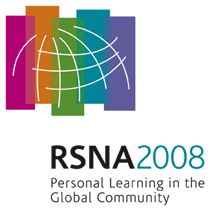
Abstract Archives of the RSNA, 2008
SST13-06
Is There a Relationship between the Incidence of Radioiodine-induced Gastritis and the Dosage of I-131 Administered to Patients with Differentiated Thyroid Cancer?
Scientific Papers
Presented on December 5, 2008
Presented as part of SST13: Nuclear Medicine (Endocrine and Neuroendocrine)
 Research and Education Foundation Support
Research and Education Foundation Support
Charles M. Intenzo MD, Presenter: Nothing to Disclose
Serge Jabbour MD, Abstract Co-Author: Nothing to Disclose
Jeffrey Miller MD, Abstract Co-Author: Nothing to Disclose
David Capuzzi MD, Abstract Co-Author: Nothing to Disclose
A potential side effect of radioiodine ablation with I-131 (RAI) in differentiated thyroid cancer (DTC) is radiation gastritis, resulting from irradiation of the gastric mucosa from I-131. Our goal was to determine if the incidence of radioiodine-induced gastritis (RIG) depends upon the dosage of I-131 given to the paitent.
A prospective study was undertaken over a 5-year interval. All patients undergoing RAI for DTC were questioned about gastritis-related symptoms (nausea, vomiting, etc) upon their visit for the post-ablation whole-body scan one week after RAI ablation. Patients with known gastric and gastroesophageal disorders were excluded from the study, namely peptic ulcer disease, gastroesophageal reflux, diabetes, or prior gastric surgery. Patients were then classified into3 groups, according to the I-131 dosage; 100mCi (N=148), 150mCi (N=118), and 200mCi or higher (N=82).
Of the 148 patients receiving 100mCi of I-131, 106 (71.62%) complained of gastritis symptoms, compared to 82 of the 118 patients (69.49%) receiving 150mCi, and 61 of the 82 patients (74.39%) who received 200mCi or more. There was no association between the incidence of RIG and the dose of I-131 dispensed, according to chi-square analysis.
In our series of 348 patients undergoing RAI for DTC, there is no proportional relationship between the dosage of I-131 administered and the incidence of RIG, which is contrary to what one might expect. A patient receiving 200mCi is nearly as likely to develop RIG as one receiving 100mCi.
I-131 dosage selection in DTC should not necessarily be influenced by the anticipation of radiation-induced gastritis, particularly for outpatient ablations.
Intenzo, C,
Jabbour, S,
Miller, J,
Capuzzi, D,
Is There a Relationship between the Incidence of Radioiodine-induced Gastritis and the Dosage of I-131 Administered to Patients with Differentiated Thyroid Cancer?. Radiological Society of North America 2008 Scientific Assembly and Annual Meeting, February 18 - February 20, 2008 ,Chicago IL.
http://archive.rsna.org/2008/6009935.html


 Research and Education Foundation Support
Research and Education Foundation Support